How Boris Johnson comes back
You're not going to like it
Boris Johnson is not plotting a return to British politics. We can be sure of this because he said so. Speaking to GB News, the former prime minister compared his chances of mounting a comeback to being, variously, “reincarnated as an olive”, “decapitated by a frisbee”, “locked in a disused fridge” or “blinded by a champagne cork”. In other words, the greatest hits.
As Johnson well knows — and hopes you may know too — he repeatedly employed those same already-tedious analogies more than a decade ago. That is, before he ever entered Number 10. I suppose some people just get off on the whiff of sexuality that never goes anywhere. Although, a cursory glance at the Johnson family tree suggests perhaps a misdiagnosis on my part.
Johnson is, of course, no longer an MP, having resigned his Uxbridge and South Ruislip seat in June 2023, after receiving a draft of the Commons Privileges Committee investigation into his conduct, which unanimously concluded that he had lied to the House. The report also stated that, had Johnson remained an MP, it would have recommended a suspension of 90 days, triggering a recall petition.
In the intervening period, Johnson has kept a reasonably low profile. He phones in a Daily Mail column that fails to generate the sort of buzz he managed in his Daily Telegraph era. He has fathered yet more children. And is, as we speak, probably screening calls from his publisher over books he promised to finish during the post-Cold War peace dividend. He is also bored.
A return to the Conservatives appears unattractive. Johnson attempted his first post-premiership comeback after the fall of Liz Truss, and even received sufficient nominations to stand in that contest. But much has changed since then. Not only is he out of the Commons, but the concept of a ‘safe’ Tory seat has disintegrated into a contradiction in terms.
Meanwhile — and this may come as a surprise to younger readers — being leader of the Tories no longer automatically makes you leader of the country. So, the most suitable vehicle for a return might in fact be Reform UK. “You’re exaggerating for the purposes of content creation!” I hear you mutter. Yes, I am, but hear me out.
The Heineken politician
Pre-Brexit, partygate and a thousand other indiscretions, Johnson really could reach parts of the electorate no other Conservative could. Winning in London — twice — was a genuinely impressive political achievement. Yet while he is no longer that guy, Johnson can still command a coalition. It is just that many of them now support Reform.
Analysis from More in Common following May’s local elections finds that Reform’s current coalition of voters “closely resembles a portion of the coalition which supported Boris Johnson in 2019”, with nearly two-thirds having voted Conservative that year.
The Farage factor
In Nigel Farage, Reform boasts one of the most talented political communicators around. That you may not like him or his policies does not alter this basic fact. Farage can command media attention and is always careful to ensure his party remains ‘respectable’ — even in its hard-line immigration policies. See how he dealt with former Reform MP Rupert Lowe, who had called for mass deportations.
But Reform has two key weaknesses. The first is on climate change. The party has said it will scrap net zero, while deputy leader Richard Tice and Mayor of Greater Lincolnshire, Andrea Jenkyns, both deny the existence of anthropogenic climate change. This is odd not only because polling by More in Common last year found that voters supported net zero by a margin of 77% to 17%, but also because that included a (narrow) majority of Reform supporters.
Second is on Ukraine, where support for Kyiv amongst the British public remains robust. And while polling from Ipsos finds that 35% of Reform voters think too much support has been given, 50% still say it has been the right amount. Now, which admittedly polarising politician on the right has a decent record on both net zero and Ukraine?
Johnson’s most formidable barrier would clearly be immigration. Net migration hit a record 906,000 in the year ending June 2023, a period which included his premiership. Earlier this year, Reform’s Zia Yusuf warned that the former prime minister would not be welcome to join the party, calling the rise in immigration under Johnson "a total betrayal of everybody who voted for Brexit”.
Yet the strongest case for a Johnson–Reform marriage isn’t policy or polling. It is Farage himself. The Reform leader has a long and rich history of falling out with absolutely everyone: his MPs, his backroom staff, entire political projects. Johnson may not enjoy conflict, but his a consummate opportunist, and Reform is not exactly heaving with political talent.
Sure, it probably won’t happen. There is too much easy money to be made on the international speaking circuit, and the bloke has an army to feed. But nor is it as implausible as you might think. Because with Johnson, the champagne cork rarely stays in the bottle for long.



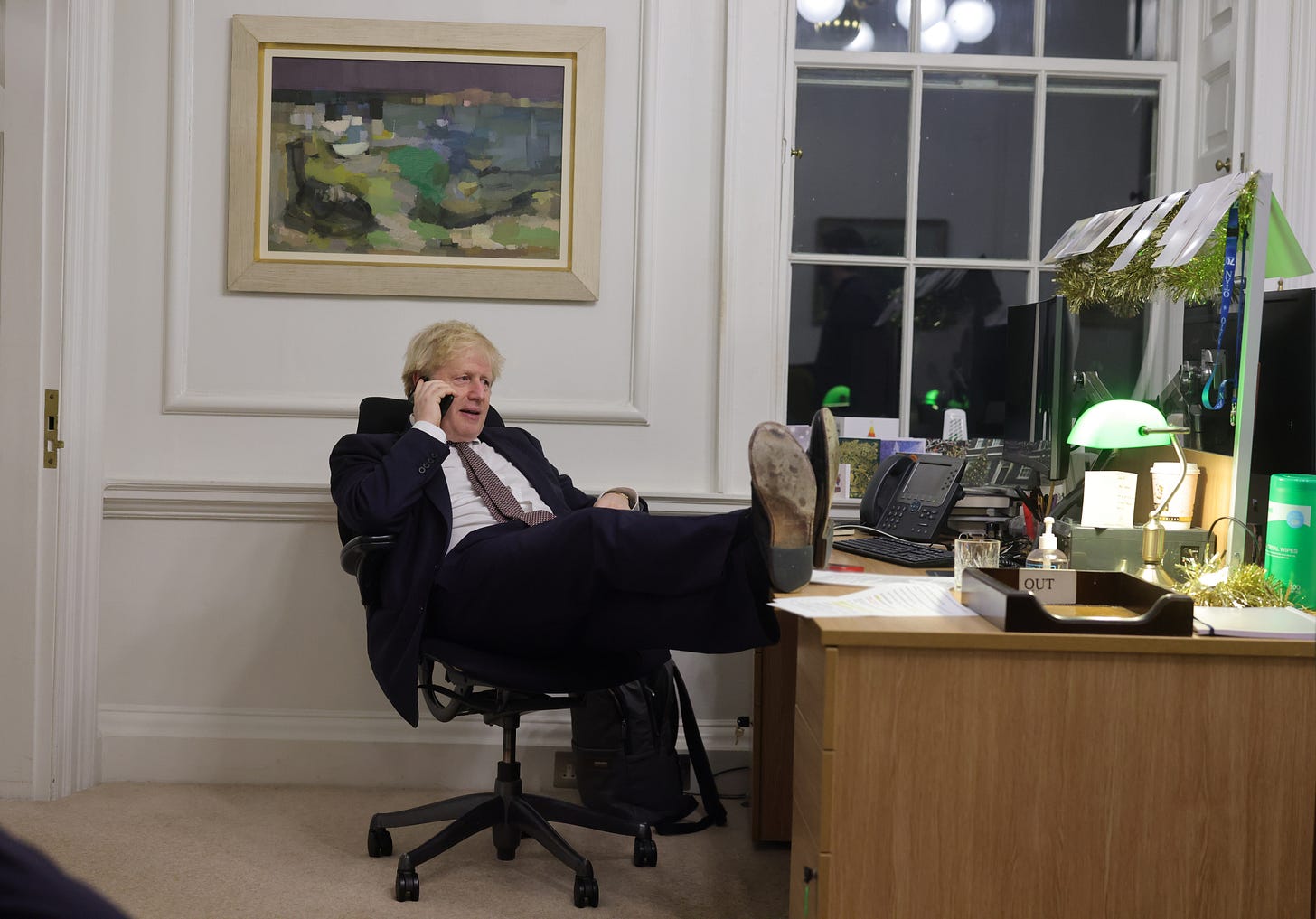
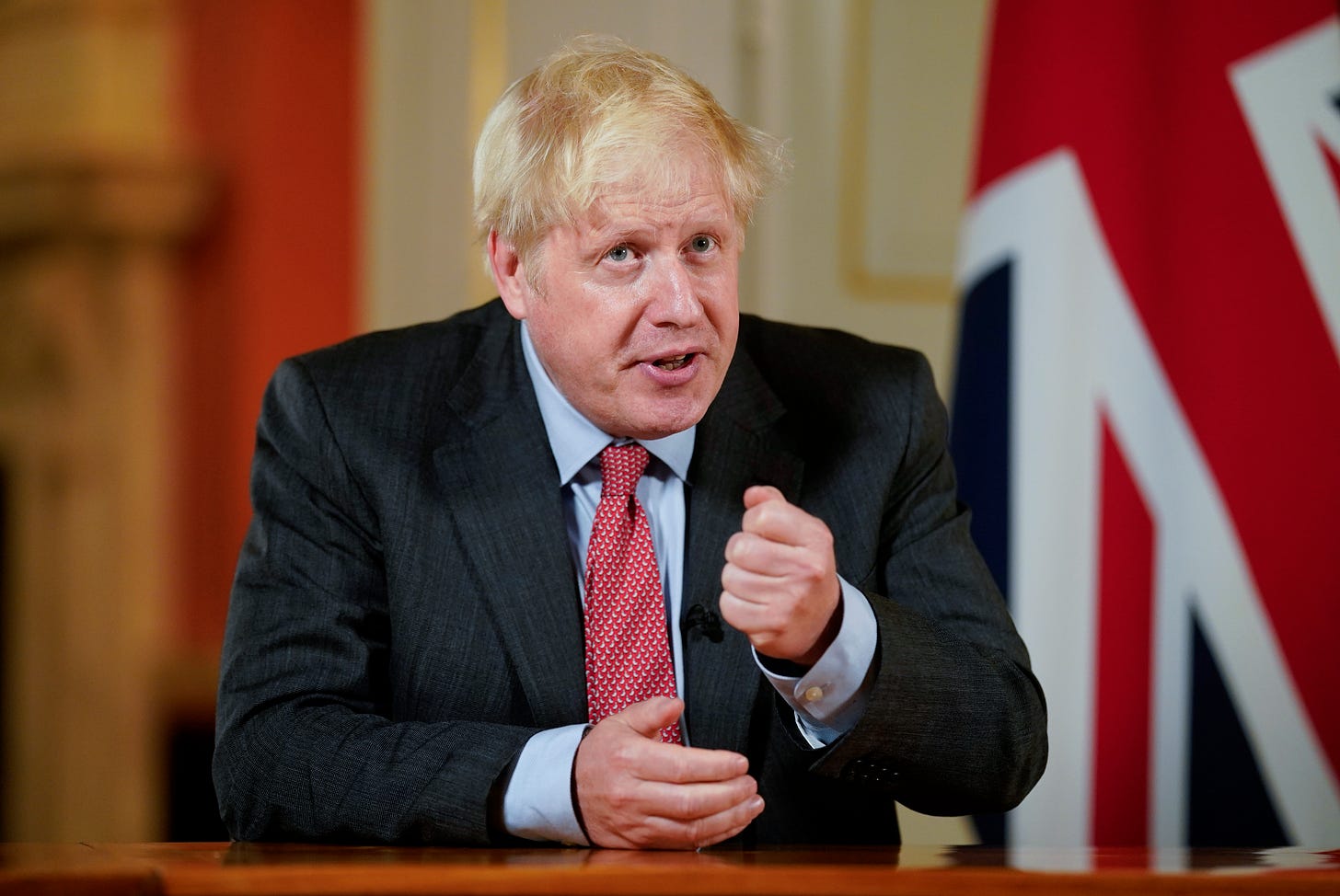
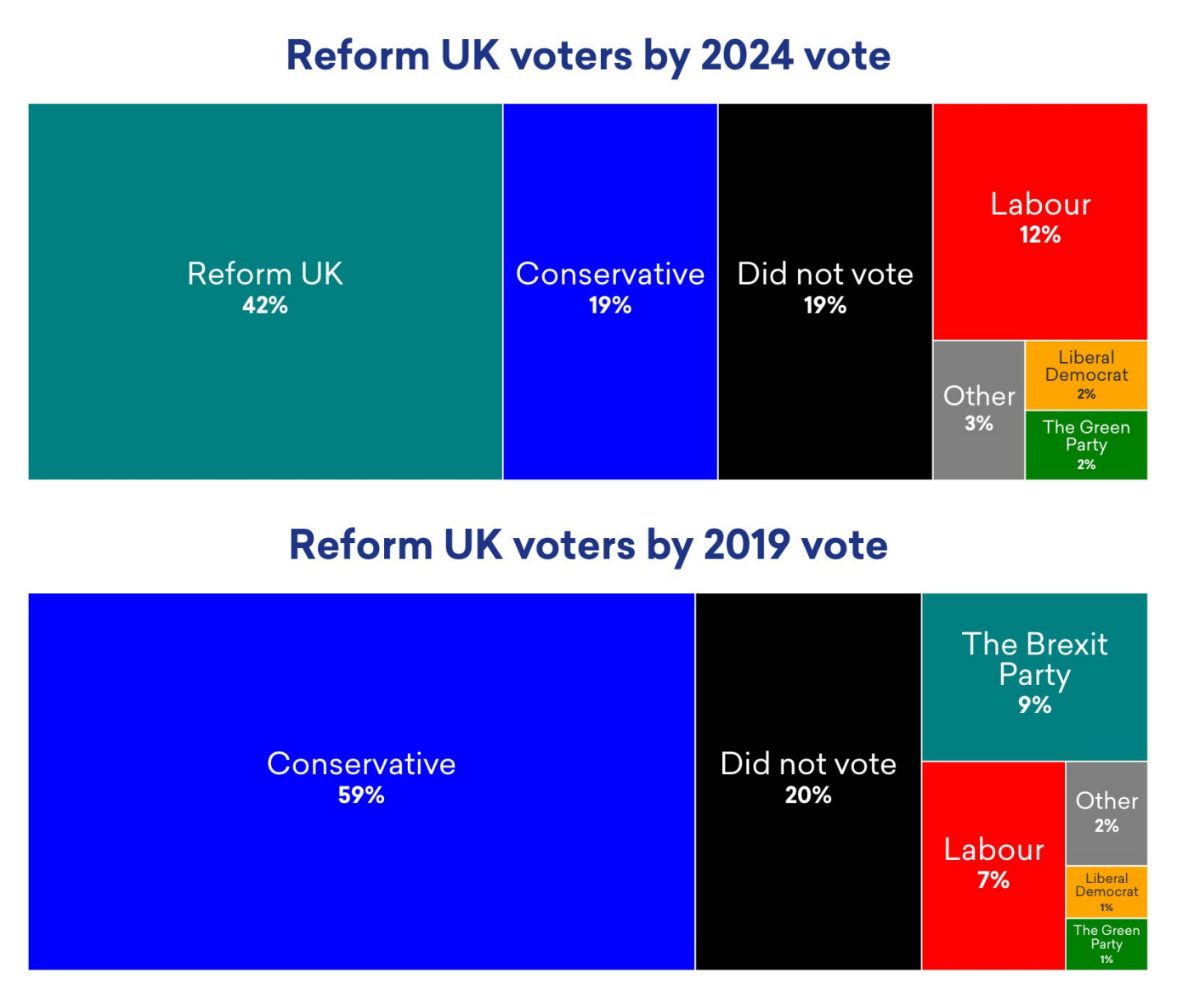
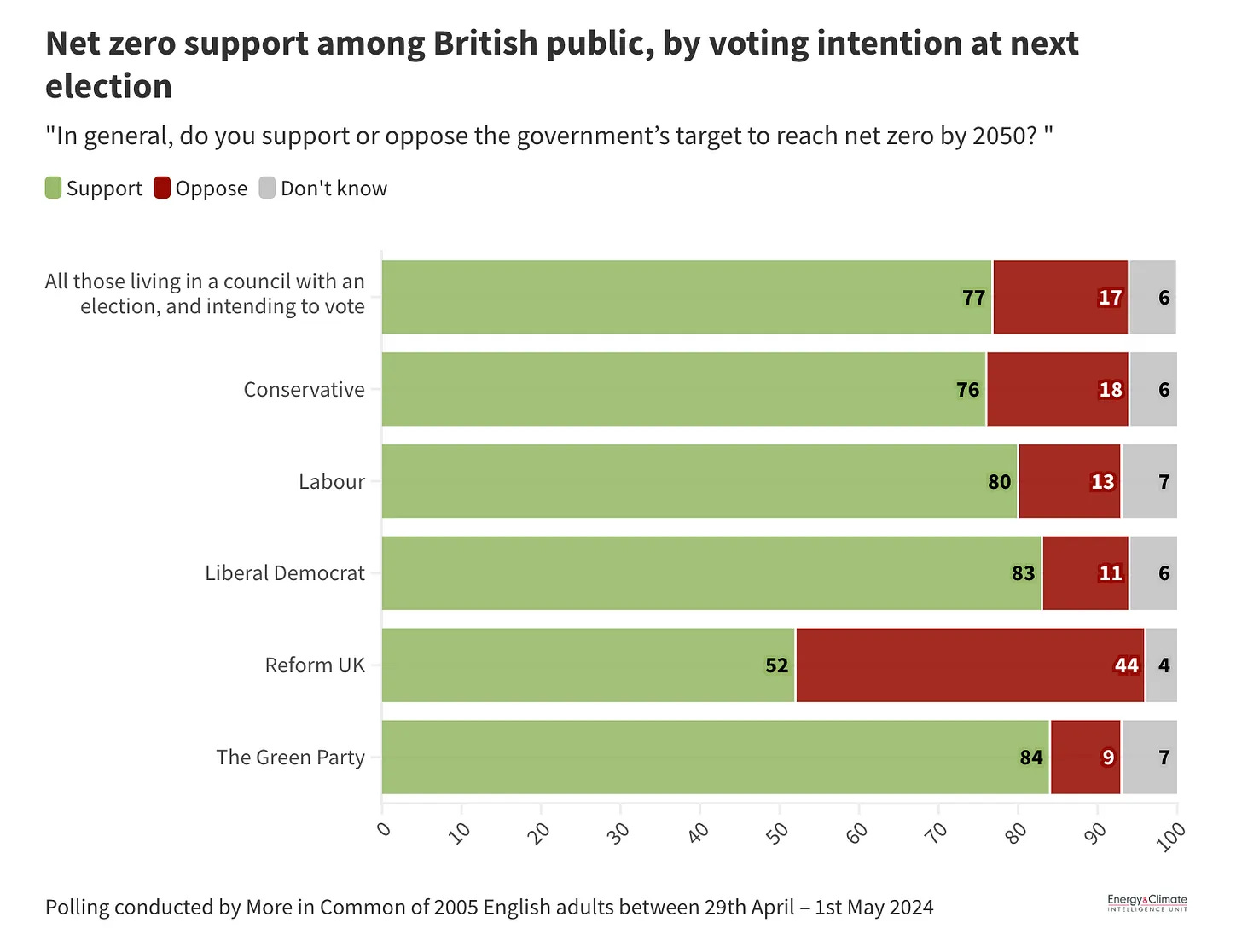
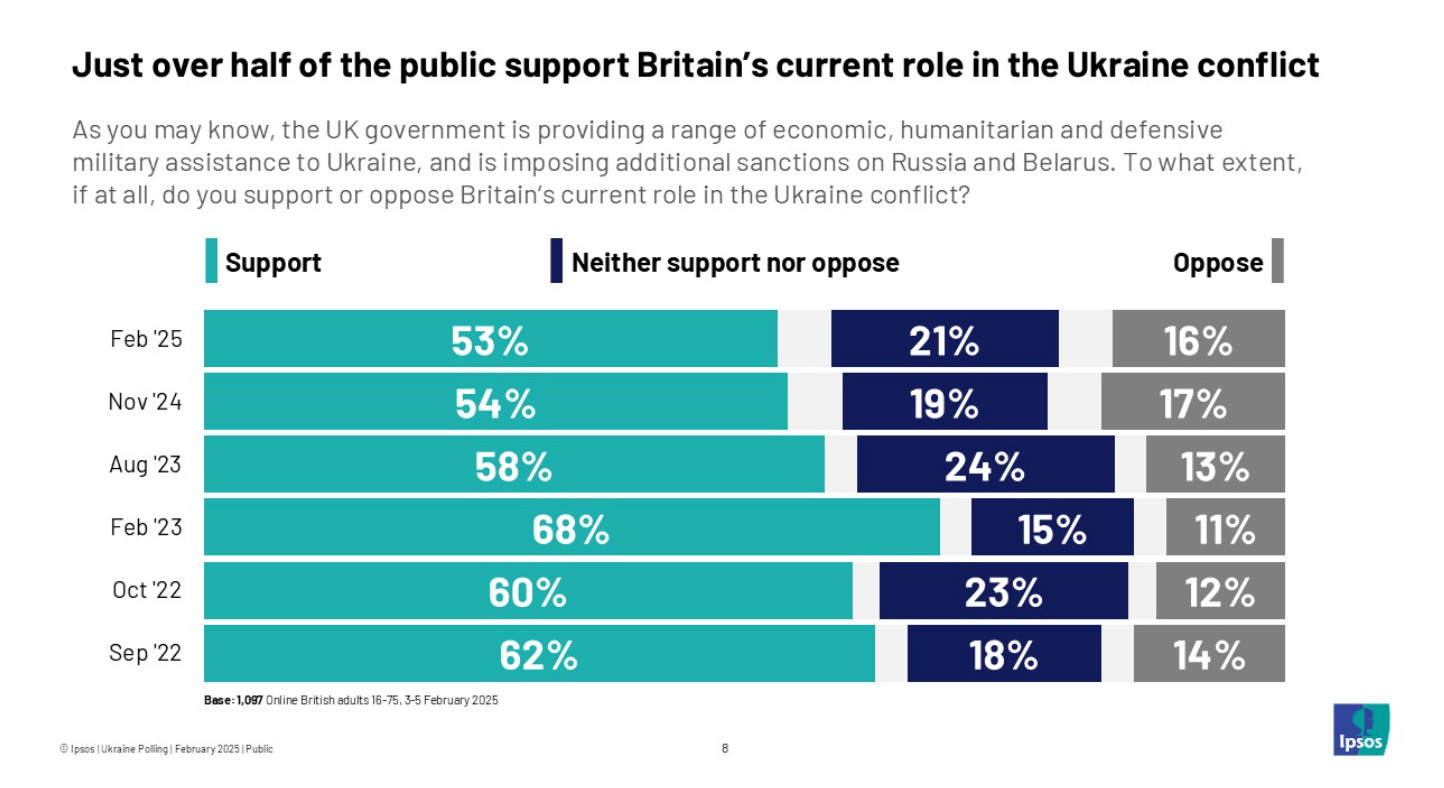
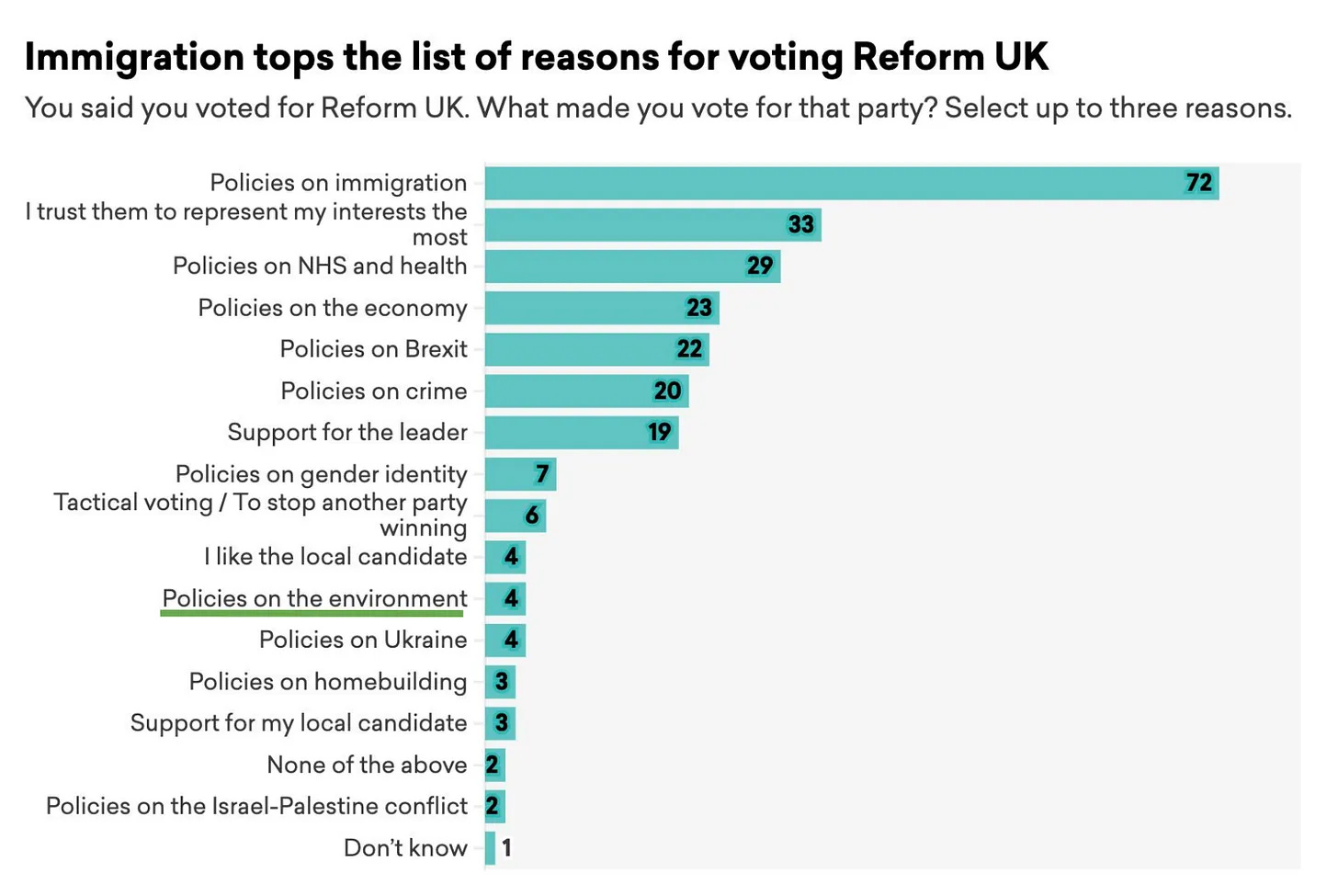
About the champagne, Johnson's hero Winston (is supposed to have) said it all: 'In victory you deserve it; in defeat you need it.' No wonder Boris's corks keep popping.
Won’t happen. More likely (than him visiting a chicken shop, unless it’s a good photo op) to start the Boris party if he has any disaffected Tory chums but suspect those are dwindling. But true he must be bored!